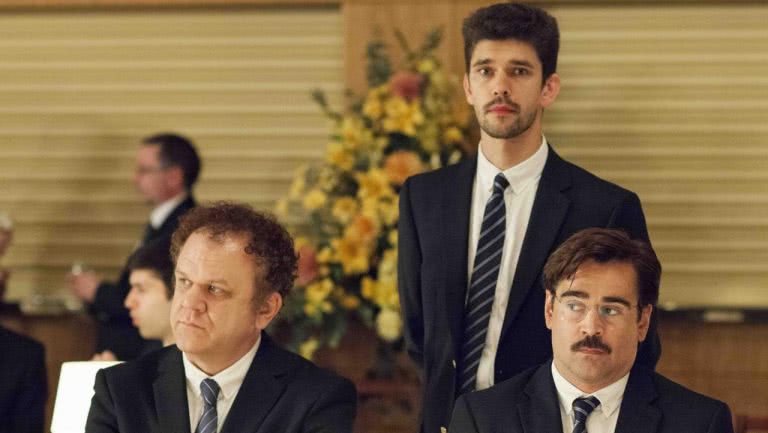★★★★
After watching Yorgos Lanthimos’ debut film Dogtooth, a weird pall hangs over the viewer. It’s a surreal experience, and an uncomfortable one at that. At first, it seems Lanthimos has shrugged off the arthouse in favour of the hilarious with his sophomore The Lobster, but the film eventually slides into a similar black pit of absurdity and pain.
After watching Yorgos Lanthimos’ debut film Dogtooth, a weird pall hangs over the viewer. It’s a surreal experience, and an uncomfortable one at that. At first, it seems Lanthimos has shrugged off the arthouse in favour of the hilarious with his sophomore The Lobster, but the film eventually slides into a similar black pit of absurdity and pain.
David (Colin Farrell) is single, and that’s not OK. After divorcing his wife, he is taken to The Hotel, where he is expected to fall in love within 45 days or be turned into an animal of his choice.
It’s a wonderfully absurd concept, executed with perfect tone. The first hour of the film evokes Wes Anderson’s awkward, stilted characters in the best possible way, and had this viewer howling with laughter. The hotel manager, BBC royalty Olivia Colman, is an absolute delight as she icily presides over the whole sordid business.
Lensed by Dogtooth cine Thimios Bakatakis, it’s also a treat for the eyes. Each frame in the wild has some new exotic creature stalking through it with perfect comic timing, and the chase sequences – in which hotel guests hunt ‘Loners’ with tranquiliser guns – recall (and parody) Lars von Trier’s most beautiful slow-motion sequences.
However, it’s the dialogue and consistency of the performances that really sell this film. Even putting American and British comics side by side (like John C. Reilly and Ben Whishaw) shows no disparity. Everyone is absolutely committed to this world, and well they should be, given just how funny it is. Farrell is also a perfect foil; an everyman of discomfortingly beige character.
But therein lies the rub – beige gives way to black, and the darkness of the world cannot be contained. As the play shifts into its second act, it bursts out in full force, repeating some of the brutish, alienating scenes of violence from Dogtooth. Suddenly the lengthy pacing of each set piece feels not comic but oppressive, and the tone shifts from absurd to abject.
In and of itself, it’s an admirable shift, but it’s hard not to wonder what could have happened had the action remained in the hotel – there’s more to this wondrous, hilarious, haunting facility whose rituals go unexplored. We’re grateful for the mysteries of the Animal Transformation room to remain obfuscated, but saddened not to see more of the ridiculous couples’ activities.
Despite suffering from pacing issues and an unwieldy sense of despair, The Lobster is a unique and interesting creature in a world full of boring old dogs.
The Lobsteropens in cinemas on Thursday October 22.



































